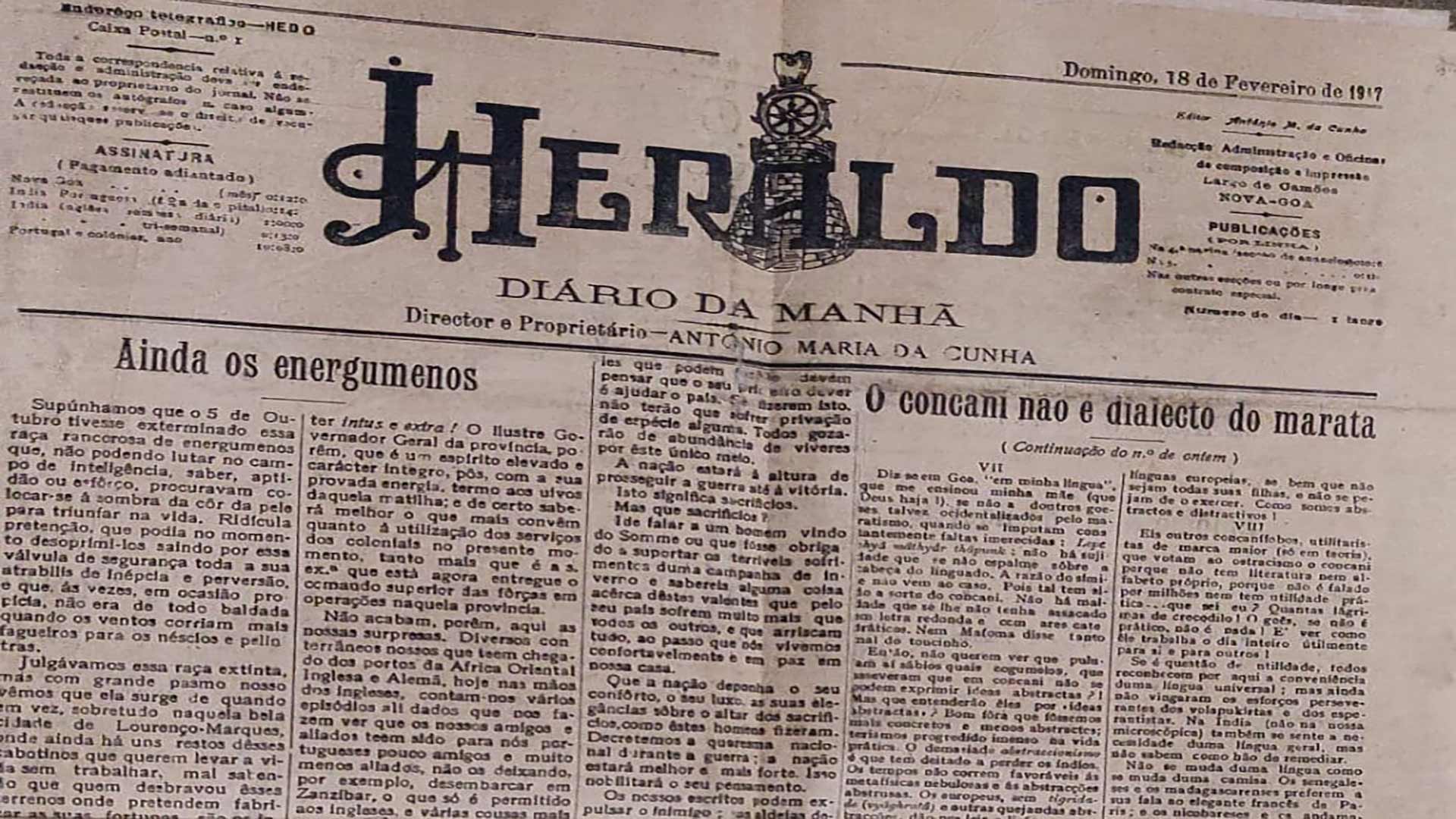Konkani is not a dialect of Marathi - 8
Part 8 of "O concani não é dialecto do marata" – Parte VIII
by Mgr. Sebastião Rodolfo Dalgado (1855-1922)
(In Heraldo, Vol. IX, No. 2575, 18 February 1917, p. 1)
Translated from the Portuguese by Óscar de Noronha
Here are other Konkaniphobes, major utilitarians (only in theory), who ostracise Konkani because it has no literature or alphabet of its own; because it is not spoken by millions nor has any practical use… what do I know? How many crocodile tears! A Goan, if not practical, is nothing! One must see how usefully he works all day for himself and for others!
If it is a question of utility, everyone recognizes over here the convenience of a universal language; but the persevering efforts of the Volapukists and Esperantists are still not vindicated. In India too (not in our microscopic one) the need is felt for a general language, but one knows not how to resolve it.
You can't change your language like the wind. The Senegalese and the Malagasy prefer their speech to the elegant French of Paris; and the Nicobarese and the Andamanese give more value to their speech than to the booming English of London. The Hottentots and the Zulus would not give up their sibilants and monosyllables for the best language in the world.
A self-respecting son does not subrogate his mother, however ugly, poor, ragged, pustulous, for a queen, beautiful as Venus, adorned with byssus and purple, with diamonds from Golconda, pearls from Ceylon and rubies from Pegu. He doesn't ‘kick’ her, as they say there; he doesn't reject her, loathe her; he hugs her, kisses her, helps her, boosts her, lavishes her with all the care and indulgence he is capable of. This is what St John Chrysostom teaches us, speaking of children, who in many ways are our teachers. Or else, the Son of God would not have said: Unless you become like little children, you will not enter the kingdom of Heaven.
I won’t be surprised if over there they know not that in Kanara there is a language, sandwiched between Malayalam (language of the Malabar) and Kannada; it has no literature, no alphabet of its own, is spoken only by five hundred thousand, is stuffed with Sanskrit, Kannada, Malabarian and Hindustani words. It is Tulu or Tulava, which bears more Portuguese terms and closer relations to Konkani than Kannada does. In the opinion of Caldwell and other grammarians, it is nonetheless one of the more developed of the Dravidian family. And till date no one has proposed that it be replaced by one of its more powerful neighbours that lend it their alphabet. On the contrary, Protestant missionaries promote it diligently, by publishing grammars, dictionaries, and other works.
If, however, Goa’s progress and happiness depend on Marathi being the vernacular and vehicle of primary education, may a Hercules arise who will do away with the Konkani hydra; and I will only have to sing his praises, mimicking Pasquin: Quod non fecerunt lusitani, fecerunt canarini.
And then, let's hope that some Nobel prizes will end up in our homeland, as did one, two years ago, in Bengal (to Sir Rabindranath), and that there will emerge an authentic genius, like Chandra Bose, who astonished scientists of Europe and America with those wonderful demonstrations of plant physiology.
First published in Revista da Casa de Goa, Series II, Sep-Oct 2024, pp __
